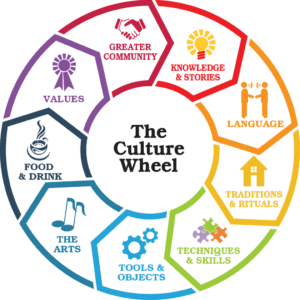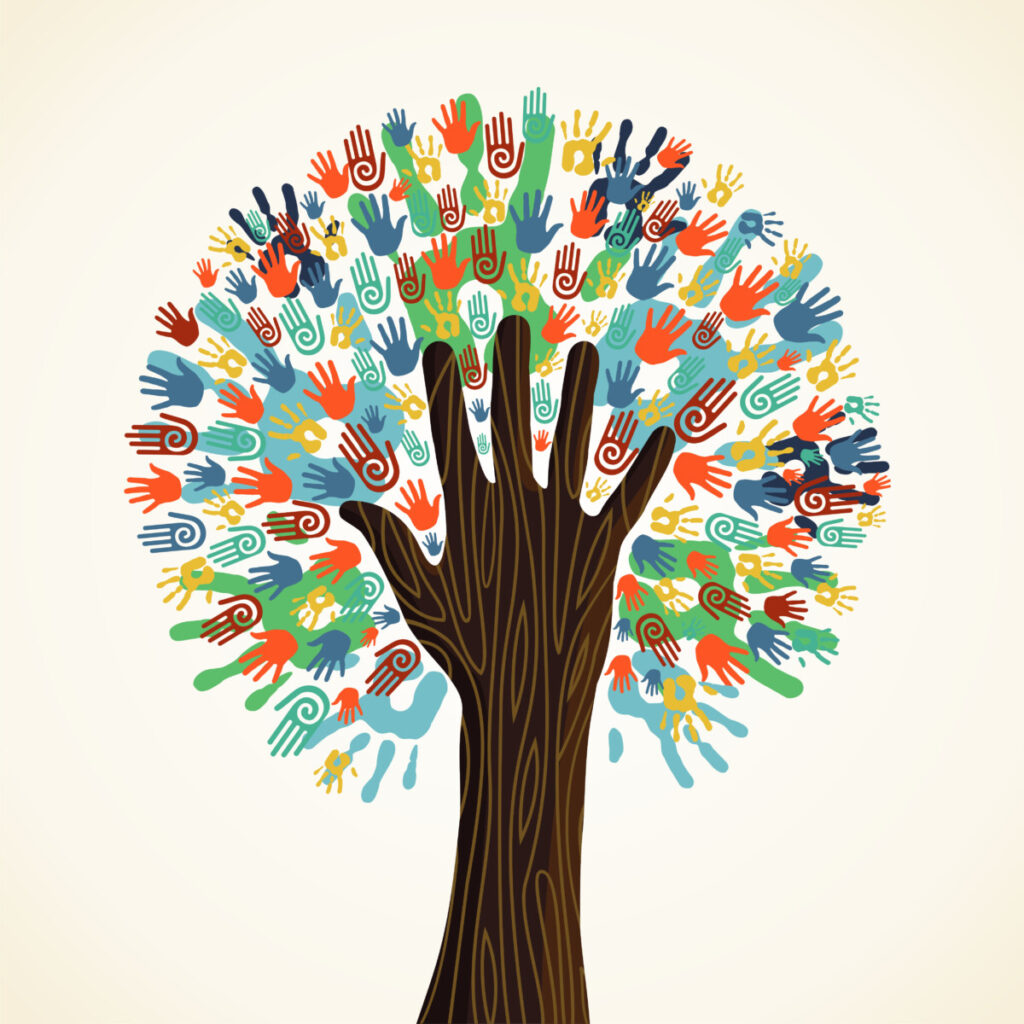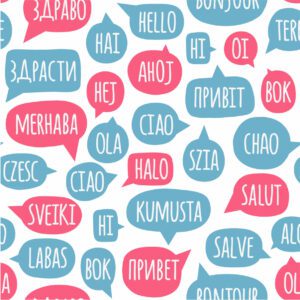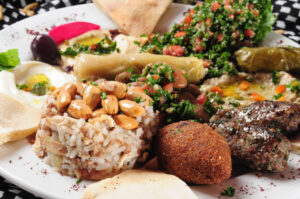I have been a psychotherapist specializing in gay men for over 28 years, and I do this as a Licensed Clinical Social Worker in California, as well as providing life/career/relationship coaching to guys outside of California and in other states and other countries around the world, and I’m also a trained sex therapist. But in my original training, as a Master of Social Work (MSW) student at the University of Southern California (USC) Suzanne Dworak-Peck School of Social Work, where I am also an Adjunct Associate Professor, I was taught and continue to teach about the “person-in-environment” theory, which takes into account not only a person’s mental health and well-being within themselves and their personality, but also the social culture in which they live. It’s an interactive “dance” between that person and the setting they find themselves in, in a certain time in history and place in the world.
The Merriam-Webster Dictionary defines culture in part as “the customary beliefs, social forms, and material traits of a racial, religious, or social group…the characteristic features of everyday existence (such as diversions or a way of life) shared by people in a place or time..”
 According to The Culture Wheel, the elements of culture include:
According to The Culture Wheel, the elements of culture include:
- Knowledge and Stories
- Language
- Traditions & Rituals
- Techniques & Skills
- Tools & Objects
- The Arts
- Food & Drink
- Values
- The Great Community
Much has been written, especially in the years after The Stonewall Uprising in 1969, about LGBT+ culture. Lately, there has been a resurgence of civil rights discussion as part of the Black Lives Matter movement, and a cultural uprising renewing calls against racism, especially regarding police brutality against people of color (and against peaceful protesters) in the United States and other countries.
It is this emphasis on culture in the news and the uprising in support of fairness and diversity that got me to thinking about culture, and how, in the mental health of LGBT+ people in general, and gay men in particular (which is my long-term area of specialization of expertise), that I wanted to write about how our cultural influences and practices can be a part of sound mental health, and cultivating the resilience that we need to face challenges and stressors in life.
 While LGBT+ people all grow up in our Family of Origin in a specific group cultural context to country, city, neighborhood, and even family household together, those of us who are LGBT+ grow up to have a Family of Choice comprised of others who are LGBT+. A young gay boy might grow up in the west side of Los Angeles, to an upper-middle-class, White, Jewish family led by two heterosexual parents who are working professionals, but if that boy is gay, he also grows up to a part of the gay community, usually meeting peers and becoming part of a gay male social network. So for gay men, we have the culture of our Family of Origin at first, but we evolve also into being a part of the LGBT+ community worldwide. In this way, we grow up and are “formed” in our personalities by two cultures, whereas our siblings who are straight might be part of their original culture and experience/define themselves by that for a lifetime, in essence replicating their parents’ experience, or even generations before them.
While LGBT+ people all grow up in our Family of Origin in a specific group cultural context to country, city, neighborhood, and even family household together, those of us who are LGBT+ grow up to have a Family of Choice comprised of others who are LGBT+. A young gay boy might grow up in the west side of Los Angeles, to an upper-middle-class, White, Jewish family led by two heterosexual parents who are working professionals, but if that boy is gay, he also grows up to a part of the gay community, usually meeting peers and becoming part of a gay male social network. So for gay men, we have the culture of our Family of Origin at first, but we evolve also into being a part of the LGBT+ community worldwide. In this way, we grow up and are “formed” in our personalities by two cultures, whereas our siblings who are straight might be part of their original culture and experience/define themselves by that for a lifetime, in essence replicating their parents’ experience, or even generations before them.
This is an idea that I hear my clients discuss frequently in clinical practice, whether as individuals or in couples. Most of the gay male couples that I see in practice come from different original cultural backgrounds, such as different ethnicities, races, or nationalities. I don’t think that bi-cultural gay male couples “need” therapy any more than others; I think it’s just that practicing in Los Angeles tends to lend itself to diverse couplings because LA is such a culturally diverse city. However, I see this in gay male couples when I’m doing relationship coaching in other cities as well. Part of what I do in couples work is what I call “navigating difference”, how the two (or more) partners in a couple or relationship can appreciate their differences, gaining a strength in diversity and harmony, rather than letting their differences be a source of friction or conflict (my article on cross-cultural issues in gay male couples is here).
When I work with clients, they usually come to me seeking therapy, coaching, or sex therapy services to address a problem they are experiencing that is causing them stress, or is undermining their subjective quality of life, and we get into ways of troubleshooting and resolving that challenge, solving the problem that they “present” to me. But rather than being problem-focused entirely, social workers like me are taught to use what we call “strengths-based” resources, so that the strengths, aptitudes, talents, or even privileges of that client can be leveraged from one area of life, that is working just fine, and applied to help the area where they are experiencing problems.
It is from this strengths perspective that we can look at the role of culture. How can who you are and how you were raised in your country, family, time, and place help you with your current challenges and enhance your quality of life?
For some clients, they want to escape and really drive distance away from their culture of origin, such as being raised in a sometimes particularly vicious and anti-gay religious background, which could be conservative Evangelical, Catholic, Jewish, Mormon, Scientology, or Muslim religious communities, or even things like fringe cults (which a surprising number of my gay male clients have experienced). For these guys, their culture of origin is a source of profound pain, even trauma, and they want to be as far away from that culture, and the damage it caused to their mental health, as possible.
But even for guys who were raised in a culture that caused harm, whether it’s a religious community like one of those, or other “culture”, such as being a refugee from a country that was devastated by the effects of war or perhaps famine, there is still a way to think of how culture can be used to our advantage for cultivating personal resilience and strength in mental health.
If we use that strengths-based perspective, we can think of how, using Cognitive Therapy (one of my favorite techniques), we can “reframe” our culture of origin into something that can be used to strengthen us.
How can you apply the strengths of your culture to your current personal or professional challenges?
Let’s take some of the examples of The Culture Wheel, and how you might think of these in terms of using them to build your own strengths in your sense of self, and what you are trying to accomplish in your relationship, career, or any life goal:
- Knowledge and Stories – What do you know because of your own study of your culture growing up? Were there texts, books, stories, or other sources of knowledge that taught you about life? What are the lessons taught in a religious institution, school, or stories from your parents or grandparents? For example, someone from an Evangelical background might resent its teachings that basically amount to hating LGBT people as “sinners”. However, there would have been a lot of imagery about death and rebirth, or rituals around holidays. It might teach about “doing what’s right”, even though what they considered “right” might not be what you want to consider “right” as an empowered adult.
 Language – How did you learn how to talk? What languages did you grow up speaking? What were the parables, figures of speech, idioms, and slang that helped you make sense of the world via language? Do you notice a difference in how your grandparents or parents talked, versus how your peers in school talked? What’s better about each? What’s worse? How do these influences help you determine how you want to speak now? Do you speak a different language now than the one(s) you were raised with? How do you feel about that change? What have you learned about the world from speaking different languages? What about “gay slang”? How has this helped you understand your place in gay culture? Do you find some “gay slang” funny? Appalling? Useful?
Language – How did you learn how to talk? What languages did you grow up speaking? What were the parables, figures of speech, idioms, and slang that helped you make sense of the world via language? Do you notice a difference in how your grandparents or parents talked, versus how your peers in school talked? What’s better about each? What’s worse? How do these influences help you determine how you want to speak now? Do you speak a different language now than the one(s) you were raised with? How do you feel about that change? What have you learned about the world from speaking different languages? What about “gay slang”? How has this helped you understand your place in gay culture? Do you find some “gay slang” funny? Appalling? Useful?- Traditions & Rituals – What were the traditions in your house growing up? What did you always do? What did you never do, or was forbidden? Who were you taught were “the good guys” and who were “the bad guys”? What traditions or rituals, such as daily life or even holidays of the year, do you carry over from childhood that are still important to you now? What traditions or rituals did you learn later, away from your parents, that you have embraced as a result of learning more about other people and other cultures?
- Techniques & Skills – What do you know how to do as a result of your culture, like learning a folk skill or even a trade? What is your culture of origin “known for” that other cultures might even envy about it?
- Tools & Objects – What do you associate with your home growing up, such as a tool or object that has been imbued with a meaning beyond what it’s simply made of? Are there any objects, heirlooms, or decorations that have a sentimental value to you that you wear, carry, or display where you live now? How can you derive inspiration from the symbolic meaning that they have for you? Are there any objects that even “comfort” you in times of stress?
- The Arts – What do you know about the arts of music, painting, sculpture, poetry, theatre, or prose that are associated with your culture? What arts are you drawn to that were a positive influence of comfort or inspiration? What artists do you associate with the time and place in which you grew up–who inspired you? I was a gay little boy outside Washington, DC, in the 1960’s and 70’s (and some 80’s), so I was influenced by people like Cher, Liza Minnelli, Judy Garland, and TV shows like “Bewitched” and “The Golden Girls” and movies like “The Wizard of Oz” and “Tootsie”. I get a positive, relaxed feeling whenever I’m exposed to any of those. What kinds of arts help you relax or bring back positive memories, like a reverie?
 Food & Drink – What foods were you raised with that you still enjoy today? What is “comfort food” to you? What foods do you associate with the people who raised you? What foods have a negative connotation that you avoid? What foods make you smile when you think about eating them? What do you eat or drink that might be unusual from other people you know, but you know those foods from your culture of origin? What foods do you like that “require explanation” to others?
Food & Drink – What foods were you raised with that you still enjoy today? What is “comfort food” to you? What foods do you associate with the people who raised you? What foods have a negative connotation that you avoid? What foods make you smile when you think about eating them? What do you eat or drink that might be unusual from other people you know, but you know those foods from your culture of origin? What foods do you like that “require explanation” to others?- Values – This is a very important one. How do you define your values, in terms of what is important to you? What priorities do you hold? What is your idea of justice? What is your idea of injustice that makes you righteously angry? What values do you have from your upbringing that you want to keep and preserve? Which values do you disagree with and which ones do you want to embody, teach, and influence others with? What values do you have that you wish you didn’t? What values do you hold that guide your way of life and help you survive when times are tough?
- The Greater Community – What did you like about the greater community–beyond your own household or family, growing up? What did your community do, as a whole, that made you feel like they were “getting it right”? What did your community do or not do that made you feel ashamed to be a part of it or made you want to leave it in favor of something better? What did your community teach you that you carry with you to this day that strengthens or inspires you when times are tough?
I think other topics to consider in culture might be what your culture does for fun that maybe you still enjoy doing today? How did your culture approach topics like politics? Spirituality? Relationships? Child-rearing? Sex? Money? Alcohol and substances? The environment? Nature? Education? Business? Animals? Children? The elderly? The disabled? Beauty and grooming? Fashion? Social justice? Exercise? Criminal justice? LGBT issues? Race? Gender roles? Technology? History? Health and medicine? Law?
All of these “elements” of culture in part made you who you are today, in your culture of origin, but also, all of these items in a specifically LGBT context also make you who you are today.
By applying some healthy critical thinking to these items in culture, we can take a self-empowered approach to double-down and really commit to the cultural traits that we love and appreciate in ourselves and others and we also learn “what not to do” when we experience cultural items that we associate with mean-spiritedness, selfishness, violence (either legally, socially, or even “corporally” – of the body), or exploitation. We underscore the traits we want to celebrate, and we work hard to eliminate the traits and influences that bring us down.
 Part of why world cultures develop is to help human beings to adapt to their environment: whether it is in world geography, climate, natural resources, or interactions with others, and also its place in history so that the various peoples endure and even thrive. Your quality of life can be influenced by how you navigate and apply the cultural traits you want to emphasize as a way of life. When you celebrate the best parts of the culture you came from with the best parts of the culture(s) you have adopted as an empowered adult, you’re helping yourself improve your quality of life. When LGBT+ people in general, and gay men in particular, are faced with so many stressors in the modern world, we need to identify and apply all the sources of inspiration and strength that we can find.
Part of why world cultures develop is to help human beings to adapt to their environment: whether it is in world geography, climate, natural resources, or interactions with others, and also its place in history so that the various peoples endure and even thrive. Your quality of life can be influenced by how you navigate and apply the cultural traits you want to emphasize as a way of life. When you celebrate the best parts of the culture you came from with the best parts of the culture(s) you have adopted as an empowered adult, you’re helping yourself improve your quality of life. When LGBT+ people in general, and gay men in particular, are faced with so many stressors in the modern world, we need to identify and apply all the sources of inspiration and strength that we can find.
For help and support that’s individualized to you and your particular person-in-environment cultural context and its challenges, consider therapy or coaching. We are here to help: email Ken@GayTherapyLA.com, or call/text 310-339-5778 for more information on the services we offer.


 Language – How did you learn how to talk? What languages did you grow up speaking? What were the parables, figures of speech, idioms, and slang that helped you make sense of the world via language? Do you notice a difference in how your grandparents or parents talked, versus how your peers in school talked? What’s better about each? What’s worse? How do these influences help you determine how you want to speak now? Do you speak a different language now than the one(s) you were raised with? How do you feel about that change? What have you learned about the world from speaking different languages? What about “gay slang”? How has this helped you understand your place in gay culture? Do you find some “gay slang” funny? Appalling? Useful?
Language – How did you learn how to talk? What languages did you grow up speaking? What were the parables, figures of speech, idioms, and slang that helped you make sense of the world via language? Do you notice a difference in how your grandparents or parents talked, versus how your peers in school talked? What’s better about each? What’s worse? How do these influences help you determine how you want to speak now? Do you speak a different language now than the one(s) you were raised with? How do you feel about that change? What have you learned about the world from speaking different languages? What about “gay slang”? How has this helped you understand your place in gay culture? Do you find some “gay slang” funny? Appalling? Useful? Food & Drink – What foods were you raised with that you still enjoy today? What is “comfort food” to you? What foods do you associate with the people who raised you? What foods have a negative connotation that you avoid? What foods make you smile when you think about eating them? What do you eat or drink that might be unusual from other people you know, but you know those foods from your culture of origin? What foods do you like that “require explanation” to others?
Food & Drink – What foods were you raised with that you still enjoy today? What is “comfort food” to you? What foods do you associate with the people who raised you? What foods have a negative connotation that you avoid? What foods make you smile when you think about eating them? What do you eat or drink that might be unusual from other people you know, but you know those foods from your culture of origin? What foods do you like that “require explanation” to others?